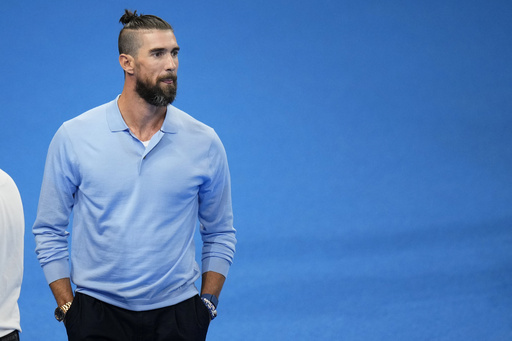The World Anti-Doping Agency and World Aquatics revealed that 23 Chinese swimmers had tested positive for banned substances leading up to the Tokyo Olympics. Despite the delayed disclosure of these results, authorities accepted the Chinese explanation attributing the positive tests to contaminated food.
During the recent Paris meet, it emerged that nine of the implicated swimmers had clinched medals, including relay team victories, prompting criticism from British swimmer Adam Peaty about the fairness of competition. Phelps echoed Peaty’s sentiments, asserting that the Chinese swimmers in question should not have been permitted to participate in either Tokyo or Paris, emphasizing that they should be excluded from all future events.
Phelps, renowned for his exceptional success and clean sporting record, shared that he faced accusations of cheating throughout his career. To dispel doubts surrounding his performances, particularly during the 2008 Beijing Olympics where he secured eight gold medals, Phelps underwent additional testing to demonstrate his adherence to anti-doping regulations. He emphasized the importance of competing cleanly, stating that all 23 of his Olympic gold medals were earned without the aid of performance-enhancing substances.
Retired since the 2016 Rio de Janeiro Games, Phelps has been vocal about various issues such as mental health and anti-doping measures. He testified before the U.S. Congress advocating for significant reforms within the anti-doping system. Phelps stressed the necessity for global collaboration to implement uniform testing protocols and enforce lifetime bans for offenders.
Expressing empathy for athletes like Peaty, who may feel disheartened by unfair competition, Phelps reiterated his commitment to upholding integrity in sports. He denounced cheating in sports and urged athletes to uphold the values of honesty and fair play. Phelps concluded by emphasizing the importance of preserving the integrity of the Olympic Games.


